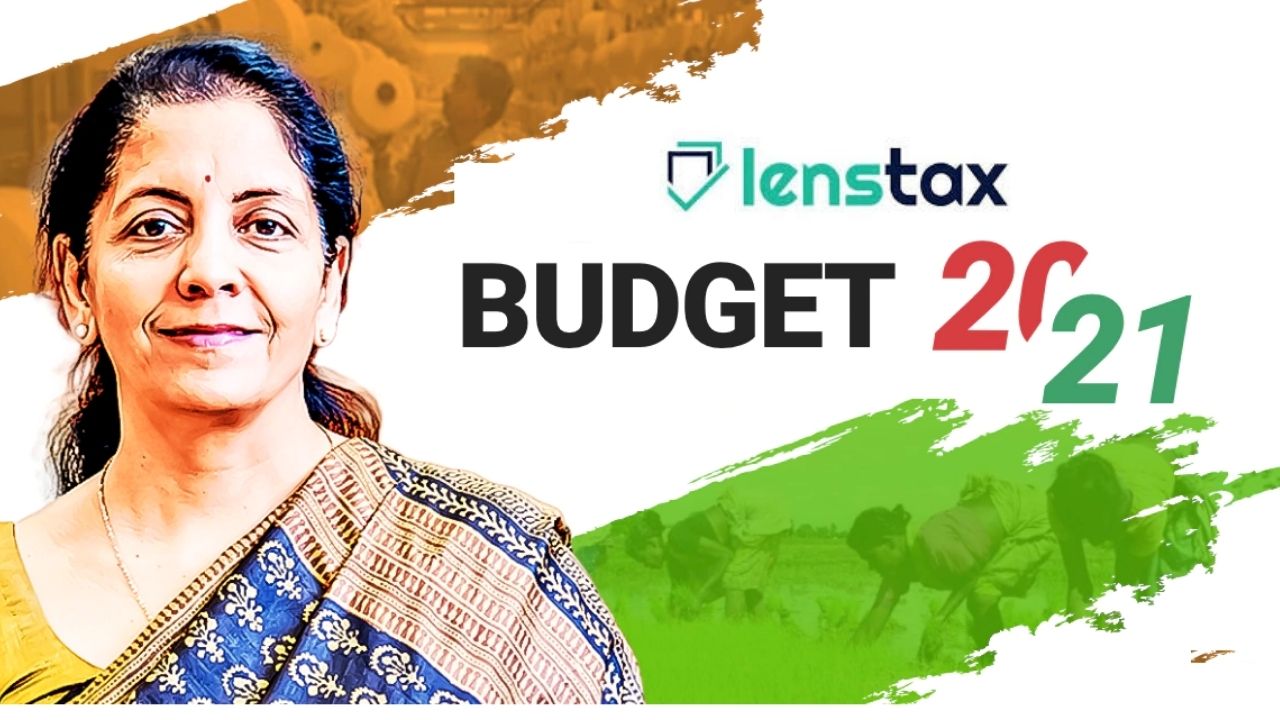Union Budget 2021-22 Summary: Here's the complete overview of Budget
Updated on : 2021-Feb-06 14:46:52 | Author :
The finance minister said that for a USD 5 trillion economy, our producing sector has to grow in double digits on a sustained basis. Our manufacturing companies need to become an integral part of world supply chains, possess core competence and cutting-edge technology

The Union Minister for Finance & Corporate Affairs, Smt Nirmala Sitharaman bestowed the Union Budget 2021-22 in Parliament today, which is the 1st budget of this new decade and also a digital one within the scenery of unprecedented COVID-19 crisis. birthing a vision for AatmaNirbhar India, she said this can be an expression of one hundred thirty crore Indians who have full confidence in their capabilities and skills. She said that Budget proposals can any strengthen the Sankalp of Nation 1st, Doubling Farmer’s financial gain, strong Infrastructure, Healthy India, good Governance, Opportunities for youth, Education for All, women empowerment, and inclusive Development among others. to boot, conjointly on the trail to fast-implementation ar, the thirteen guarantees of Budget 2015-16-which were to materialize during the AmrutMahotsav of 2022, on the 75th year of our Independence. They too resonate with this vision of AatmaNirbharta, she added.
The Budget proposals for 2021-22 rest on 6 pillars.
Health and Wellbeing
Physical & Financial Capital, and Infrastructure
Inclusive Development for Aspirational India
Reinvigorating Human Capital
Innovation and R&D
Minimum Government and Maximum Governance
Health and Wellbeing
There is a substantial increase in investment in Health Infrastructure and the Budget outlay for Health and Wellbeing is Rs 2,23,846 crore in BE 2021-22 as against this year’s BE of Rs 94,452 crore, an increase of 137 percent.
The Finance Minister announced that a new centrally sponsored scheme, PM AatmaNirbhar Swasth Bharat Yojana, will be launched with an outlay of about Rs 64, 180 crores over 6 years. This will develop capacities of primary, secondary, and tertiary care Health Systems, strengthen existing national institutions and make new establishments, to cater to the detection and cure of new and emerging diseases. This will be in addition to the National Health Mission.
The main interventions under the scheme are:
Support for 17,788 rural and 11,024 urban Health and Wellness Centers
Setting up integrated public health labs in all districts and 3382 block public health units in eleven states;
Establishing critical care hospital blocks in 602 districts and twelve central institutions;
Strengthening of the National Centre for Disease Control (NCDC), its 5 regional branches and 20 metropolitan health surveillance units;
Expansion of the Integrated Health info Portal to all States/UTs to connect all public health labs;
Operationalization of 17 new Public Health Units and strengthening of 33 existing Public Health Units at Points of Entry, that's at 32 Airports, 11 Seaports, and seven land crossings;
Setting up of fifteen Health Emergency Operation Centers and 2 mobile hospitals; and
Setting up of a national institution for One Health, a Regional Research Platform for WHO southeast Asia Region, 9 Bio-Safety Level III laboratories, and 4 regional National Institutes for Virology.
Vaccines
Provision of Rs 35,000 crore made for Covid-19 vaccine in BE 2021-22. The pneumococcal vaccine, a made in India product, presently restricted to solely five states, will be rolled out across the country aimed at averting 50,000 child deaths annually.
Nutrition
To strengthen nutritional content, delivery, outreach, and outcome, the government can merge the Supplementary Nutrition Programme and the PoshanAbhiyan and launch the Mission Poshan 2.0. the government can adopt an associate intense strategy to improve nutritional outcomes across 112 Aspirational Districts.
Universal Coverage of Water Supply and Swachch Bharat Mission
The Finance Minister announced that the JalJeevan Mission (Urban), will be launched for universal water supply in all 4,378 Urban Local Bodies with 2.86 crore household tap connections, as well as liquid waste management in 500 AMRUT cities. It will be implemented over 5 years, with an outlay of Rs. 2,87,000 crore. Moreover, the Urban Swachh Bharat Mission will be implemented with a total financial allocation of Rs 1,41,678 crore over a period of 5 years from 2021-2026. Also to tackle the burgeoning problem of air pollution, the government proposed to supply an associate amount of Rs. 2,217 crore for forty-two urban centers with a million-plus population in this budget. A voluntary vehicle scrapping policy to end old and unfit vehicles was 42 announcedFitness tests have been proposed in automated fitness centers after 20 years in case of personal vehicles and after 15 years in case of commercial vehicles
Physical and Financial Capital and Infrastructure
AatmaNirbhar Bharat-Production Linked Incentive Scheme
The finance minister said that for a USD five trillion economies, our manufacturing sector manufacturing grows in double digits on a sustained basis. Our producing firms need to become an integral part of world competence chains, possess core competency and cutting-edge technology. to attain all of the above, PLI schemes to form manufacturing world champions for an Atma Nirbharbharat are declared for 13 sectors. For this, the government has committed nearly Rs.1.97 lakh crore in the next 5 years starting FY 2021-22. This initiative will help bring scale and size in key sectors, create and nurture global champions and provide jobs to our youth.
Textiles
Similarly, to enable the textile industry to become globally competitive, attract large investments and boost employment generation, a scheme of Mega Investment Textiles Parks (MITRA) will be launched in addition to the PLI scheme. This will create a world-class infrastructure with plug and play facilities to enable the creation of global champions in exports. 7 Textile Parks will be established over 3 years.
Infrastructure
The National Infrastructure Pipeline (NIP) which the Finance Minister announced in December 2019 is the first-of-its-kind, whole-of-government exercise ever undertaken. The NIP was launched with 6835 projects; the project pipeline has now expanded to 7,400 projects. Around 217 projects worth Rs 1.10 lakh crore under some key infrastructure Ministries have been completed.


